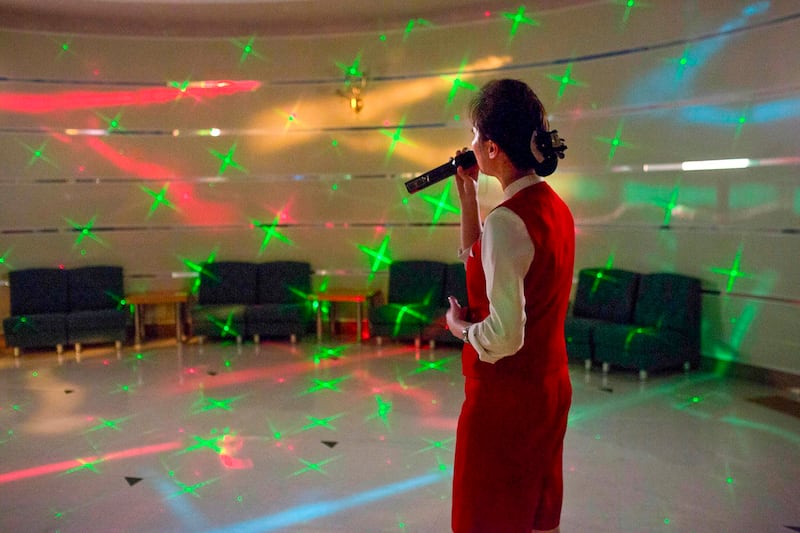North Korean authorities are shutting down all restaurants with karaoke machines, claiming they are “puppet-style and hotbeds of capitalism,” residents in the country told Radio Free Asia.
That means that the government thinks they are part of a cultural invasion from South Korea, which is often derogatorily referred to as a puppet regime of the United States.
“The authorities pointed out that eating while singing with karaoke machines is ‘an expression of rotten Western culture and puppet culture,’” a resident of the northwestern province of North Pyongan told RFA Korean on condition of anonymity for security reasons.
“Restaurants that produce food, alcohol, and parties are ‘hotbeds of capitalism,’” he said. “Restaurants that fall under this category must close within this month,” he said.
The news shocked restaurant owners and ordinary people alike. After all, the karaoke machines installed in North Korean restaurants contained only North Korean songs – not South Korean or Western tunes.
Plus, people going out to sing together was one of the only kinds of entertainment allowed because listening to music or watching movies and TV shows from South Korea is banned, a resident from North Hamgyong province complained.
But now they can’t even go out to sing patriotic songs together, he said.
Banned list
It's the latest example of North Korean authorities banning activities or fashion viewed as influenced by arch-enemy South Korea or its capitalist culture. Banned activities include " dancing like a capitalist," singing or joking " like a South Korean," or wearing sleeveless shirts and sporting certain hairstyles.
Karaoke originated in Japan in the 1970s and spread to other countries by the 1990s. Western customers preferred to sing in front of entire restaurants, while in many Asian settings, the karaoke parlor became a mainstay, with groups of friends or work colleagues renting individual rooms to sing only in front of each other.

In South Korea, people who want to sing karaoke will go to their local noraebang or "song room," with their group, rent a small room, and belt out the latest pop hits or oldies-but-goodies.
But in North Korea, it became more popular to sing with the whole restaurant as an audience and in recent years, Chinese-made karaoke machines became a must-have for a restaurant to thrive.
According to the resident, the ban does not mean that the restaurants can simply remove the karaoke machine and continue to operate.
They are to be permanently shuttered and the owner will be unable to obtain a restaurant license. RFA was not able to confirm whether the ban is temporary or permanent.
Catalyst?
The reason for the ban is related to an incident where citizens who were mobilized to provide free labor for a government construction project skipped work to go to a karaoke restaurant, the resident said.
“Some residents are protesting, saying that there is song and dance in human life,” he said. “Does singing our North Korean songs fall under ‘puppet culture’?”
He said that citizens are critical of the authorities for not allowing them to have any kind of culture in their lives and treating the people like they are all in the military.
Restaurants in the northeastern province of North Hamgyong were shocked by the sudden change in rules, a resident there told RFA on condition of anonymity to speak freely.
“Music machines are a necessity for most restaurants these days to attract customers and that restaurants are shocked by the sudden notice,” he said. “Recently, the party is labeling everything, this, that, and the other, as anti-socialist.”
“The authorities say that the use of the music machine itself is part of puppet culture and a dangerous toxin that paralyzes the ideological and mental spirit of the people,” he said.
“They claim that we live in the most superior and powerful socialist system in the world,” he said. “But if that is the case, why are they so afraid that they block everything?”
Translated by Claire S. Lee. Edited by Eugene Whong and Malcolm Foster.
